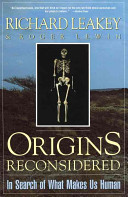The Archeologist's Search Image
A fossil hunter needs sharp eyes and a keen search image, a mental template that subconsciously evaluates everything he sees in his search for telltale clues. A kind of mental radar works even if he isn't concentrating hard. A fossil mollusk expert has a mollusk search image. A fossil antelope expert has an antelope search image. ... Yet even when one has a good internal radar, the search is incredibly more difficult than it sounds. Not only are fossils often the same color as the rocks among which they are found, so they blend in with the background; they are also usually broken into odd-shaped fragments. ... In our business, we don't expect to find a whole skull lying on the surface staring up at us. The typical find is a small piece of petrified bone. The fossil hunter's search therefore has to have an infinite number of dimensions, matching every conceivable angle of every shape of fragment of every bone on the human body.
Notes:
Varies from hunter to hunter, but must be able to find camouflaged bones that might be fragmented into many pieces.
Folksonomies: fossils archeology
Taxonomies:
/pets/large animals (0.381032)
/technology and computing/hardware/computer components/disks (0.367106)
/science/medicine/surgery/transplants (0.315388)
Keywords:
search image (0.964107 (negative:-0.116649)), fossil mollusk expert (0.858052 (neutral:0.000000)), fossil hunter (0.855122 (negative:-0.406535)), fossil antelope expert (0.820680 (positive:0.289886)), mollusk search image (0.791551 (neutral:0.000000)), Search Image Varies (0.790938 (neutral:0.000000)), keen search image (0.777419 (negative:-0.406535)), mental radar works (0.758020 (neutral:0.000000)), antelope search image (0.755159 (positive:0.289886)), good internal radar (0.749325 (neutral:0.000000)), telltale clues (0.643472 (negative:-0.668006)), sharp eyes (0.614553 (negative:-0.406535)), odd-shaped fragments (0.612820 (neutral:0.000000)), petrified bone (0.610951 (negative:-0.785589)), conceivable angle (0.603081 (positive:0.603661)), mental template (0.601275 (negative:-0.668006)), infinite number (0.579524 (neutral:0.000000)), small piece (0.576422 (negative:-0.785589)), human body (0.569701 (positive:0.603661)), Archeologist (0.459082 (neutral:0.000000)), bones (0.444737 (negative:-0.364354)), skull (0.439900 (negative:-0.424060)), kind (0.435697 (neutral:0.000000)), pieces (0.434781 (negative:-0.364354)), rocks (0.434653 (neutral:0.000000)), fossils (0.434626 (neutral:0.000000)), dimensions (0.434558 (neutral:0.000000)), color (0.429687 (neutral:0.000000))
Concepts:
Fossil (0.936740): dbpedia | freebase | opencyc
Fragment (0.936407): dbpedia
Bone (0.934662): dbpedia | freebase | opencyc
Human body (0.929429): dbpedia | freebase | opencyc
Paleontology (0.816291): dbpedia | freebase | opencyc
Fragmentation (0.807654): dbpedia
Skull (0.757411): dbpedia | freebase | opencyc
Petrifaction (0.753285): dbpedia | freebase





